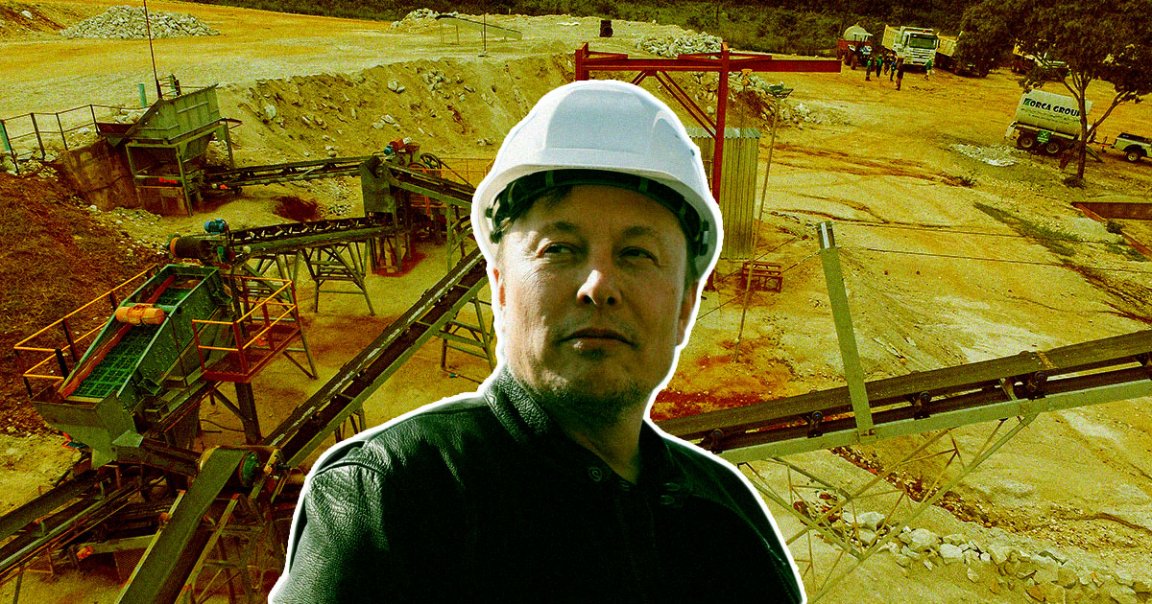
The electrification of automobiles comes with some well established benefits, from reducing our carbon footprint to ending reliance on fossil fuels.
But there’s a major obstacle that EV makers are battling with right now: the availability of rare elements that are necessary for the construction of battery packs.
Mining lithium, in particular, has proven to be extremely difficult, with a steep environmental toll and considerable humanitarian cost in parts of the world.
And that’s why we’re in the middle of a lithium crisis right now — among other reasons like the soaring demand for electric cars — with global prices of lithium skyrocketing more than 450 percent over the last 12 months.
Now, it sounds like the situation could lead Tesla to forge into a new industry: mining.
“Price of lithium has gone to insane levels!” Tesla CEO Elon Musk tweeted on Friday. “Tesla might actually have to get into the mining and refining directly at scale, unless costs improve.”
“There is no shortage of the element itself, as lithium is almost everywhere on Earth,” he argued, “but pace of extraction/refinement is slow.”
It’s a surprising suggestion, considering the sheer amount of resources it would take for Tesla to start its own mineral extraction business.
Besides, other companies are increasingly looking for ways to end our reliance on the difficult to extract element.
There’s zinc, for instance, which some researchers believe could provide a worthwhile alternative. Others argue that salt or sodium-ion batteries could also be promising.
But a viable alternative that could be produced at scale — and that can also rival the considerable energy density of lithium-ion batteries — has yet to be found.
In other words, Tesla will likely have to rely on lithium for the near future, despite the rising costs. That means we may see Tesla and other EV makers raising their prices, undermining ongoing efforts to advocate for the widespread adoption of EVs.
In fact, Tesla already had to increase prices across its lineup last month, with the cheapest Model 3 now going for over $46,000.
“Tesla and SpaceX are seeing significant recent inflation pressure in raw materials and logistics,” Musk tweeted at the time.
It’s a difficult period for electric vehicle manufacturers. Compounding inflation woes are an ongoing global microchip shortage and political uncertainty resulting from Russia’s invasion of Ukraine, driving up commodity prices.
The need for a feasible alternative to lithium-ion batteries has never been more clear — and companies around the world are desperately looking for other ways to meet a surging demand.
But whether Tesla will be able to turn things around by establishing its own lithium mines remains to be seen.
More on Tesla: Elon Musk Jumps to Fix Tesla Glitch “Damaging Users’ Hearing”